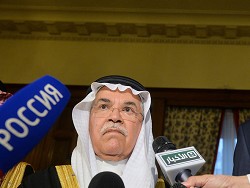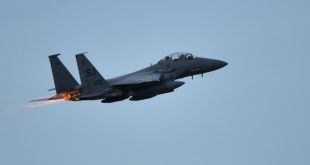
OPEC members will revive the idea of maintaining a certain level of production during the talks behind closed doors on the eve of the formal meeting. Of this, Saudi Arabia requires to raise the maximum level of production.
The Wall Street Journal, with reference to the delegates of the countries-OPEC members, says that the negotiations about the ceiling of production represent a return to the traditional ways of doing business within OPEC.
The willingness of Saudi Arabia, the largest exporter of the group, to support the idea about the ceiling of production or production quotas is a significant shift for a country that previously talked about maintaining production at the highest level. Since Iran rejected this possibility, the agreement has not been reached.
Now we are talking about the fact that the Organization of countries-exporters of oil will return to the total figure, and the discussion will focus on the extraction of individual countries.
Previously, the maximum level of production within OPEC was assumed at the level of 30 million barrels a day, but this figure in recent months was not observed.
The market was considered the limit of OPEC production as a kind of guarantee. Once the cartel began to produce more oil prices fell to 13-year lows for several weeks.
On the first day of the meeting, OPEC members are unlikely to agree on any decision. Most likely, the limit will be the subject of hard discussions. Now the countries belonging to the cartel, extract per day about 32.5 million barrels of crude oil.
At the same time inside of the organization relations between the two countries is far from ideal, so the negotiations may simply end in nothing, since all the OPEC decision should be taken unanimously.
Nigeria, Qatar, Algeria and Venezuela support the return of the limit, which is not surprising as these countries have repeatedly appealed to his colleagues in the cartel with a request to reduce production to raise oil prices.
The representative of Qatar stated that the production ceiling would be akin to taking antibiotics during illness, and in Algeria believe that prices will collapse if OPEC does not come to an agreement.
Surprisingly, Saudi Arabia is ready to support the revival of the limit, but want to achieve a ceiling of 32 million barrels a day, as it is necessary to account for the growing share of the cartel on the market.
But Iran is likely, is unlikely to support such a decision, if only for him I’ll make an exception or set an individual maximum level of production is 4 million barrels a day or more.
Late on Wednesday, after arriving in Vienna, oil Minister of Iran said that his country will not stop to increase production, until it reaches more than 4 million barrels per day in the framework of the economic recovery plan after the abolition of the sanctions regime.
Although he noted that this figure could be reached “very soon”, he rejected the collective limit, because he “will not bring any benefit to Iran.”
And if Iran refuses the agreement, then at least one member of the United Arab Emirates is also not going to compromise.
In the UAE believe that the rebalancing of prices will be achieved through market forces, therefore, more appropriate would be non-interference of OPEC.
“Supply and demand are working, and this is the essence of such a policy, – said the Minister of energy of the United Arab Emirates Suhail bin Mohammed al-mazroui. – With the beginning of the year to present the market itself is adjusted upwards. This is the year of correction”.
For Saudi Arabia’s support limit will be a serious advantage, as it will restore relations with the poorer members of the OPEC. Many of them are outraged by the large role that the Kingdom played in the collapse of talks aimed at freezing of oil production.
The introduction of the ceiling will not require Saudi Arabia to a strong decline of oil production, which is now near a record high.
If an agreement is reached, it may mitigate concerns about a split within OPEC, it is particularly important to reduce tensions between Saudi Arabia and Iran, as this will increase the efficiency of the cartel.







